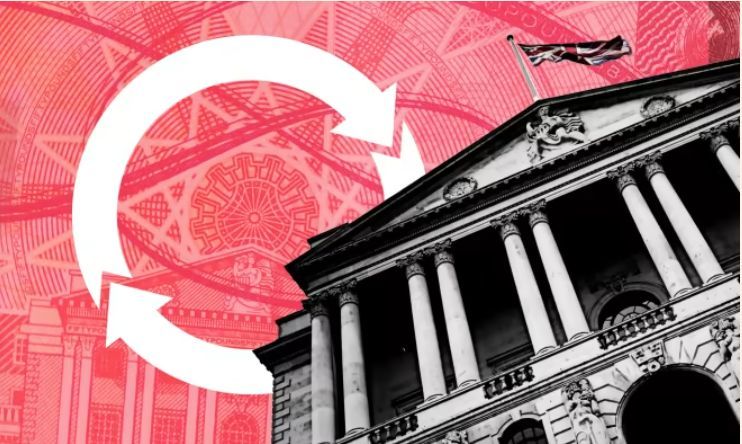By Eric Vandenbroeck
and co-workers
The new recession
What a wild week. The
turmoil in UK markets escalated far beyond what anyone could have expected, even
after the government revealed a remarkably ill-judged mini-Budget last Friday.
According to top
economist Mohamed El-Erian a U.K. recession
is now inevitable, and the only question is its depth and duration. With
the Guardian writing to days ago: How Liz Truss plunged the UK to
the brink of recession in just one month.
A ‘doom-loop’
triggered by pension funds selling gilts led to a collapse of the UK government
bond market until the Bank of England intervened.

In general, bond
markets all over the world are under pressure right now. But in the British
case, an additional technical factor has contributed to the avalanche-like
sell-off: the pension funds in the U.K. hold lots of government bonds. These
are private pension funds, and they had decided to hedge themselves against the
possibility of interest rates falling. So rather than just being able to pocket
the windfall of the interest rate increase, they needed to unwind a bunch of
hedge deals that covered them against the opposite eventuality. And that is
what was triggering the sales of assets.

Liberal Democrat
leader Sir Ed Davey argued that the government, by waiting until 23 November,
allowed the UK economy to "fly blind" for two
months. "Families and businesses can't afford to wait any longer for
this government to fix their botched, unfair budget," he said.
And the falling
exchange rate will hurt. It will immediately hurt the cost of practically
everything in the supermarket. So there will be a pretty direct effect there.
But we’re talking about a relatively modest currency movement. We’re not
talking about the 20, 30 percent fall over a matter of days. We’re talking
about a 10, 15 percent fall, which is still very dramatic for a currency as
significant as sterling, a reserve currency, a minor reserve currency.

The current panic is
huge because it affects the government bond market. And that is a big deal in any
country because that is the foundation of the flexibility of government
finances. And it’s a very big market. It’s trillions of dollars
worth even in the U.K.; in the U.S., it’s $24 trillion. This is a huge
pool of assets in which practically anyone, one way or the other, principally
by way of, say, the Social Security fund or using a pension, is invested. And
so that’s the bit that’s spasming. And in the British case, what’s alarming, is
that the currency movements appear to be closely associated with the spasms in
the bond market, which you don’t want to see. You would prefer those two things
to be independent of each other. When they become coupled, it begins to feel a
little bit like an emerging market situation where investors are, in a sense,
opting in or out of a country, and when they opt out of the government bonds,
they exit altogether. And that’s a worrying sign when that happens. And it can
become self-reinforcing because as the currency falls, the bonds become less
attractive to hold, and so on.
Meanwhile, the
markets have resumed their tailspin despite a rescue for Bear Sterns, the investment bank that has
come a cropper because of its ill-fated expansion into securities based on
sub-prime mortgages. Larry Elliott, the Guardian's economics editor, is
in typically
robust form, arguing
that Americans have been conned.
For updates click hompage here